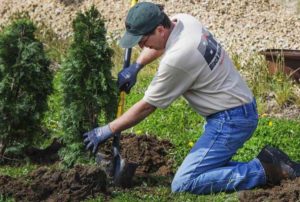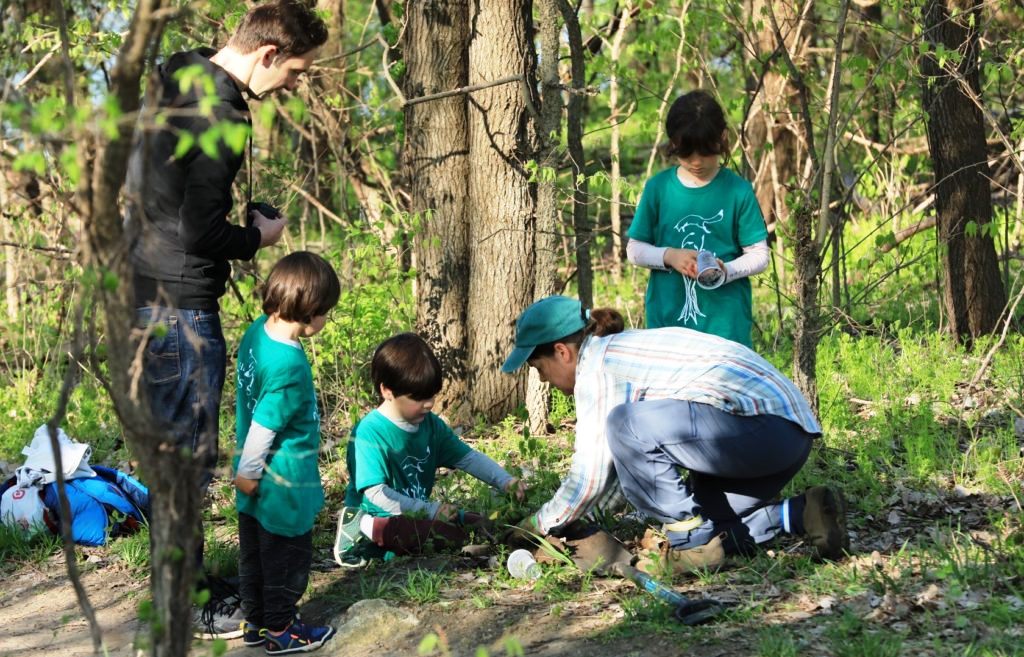Helping low-income elderly residents age gracefully in more energy efficient homes. Creating a shared community vision for open spaces like prairies and wetlands. Engaging and amplifying historically marginalized voices in decisions that impact how they live, work, play and get around.
These community-based approaches that address climate impacts, strengthen local economies and improve the well-being of all residents are the latest round of projects that will receive funding thanks to the Partners for Places matching grant program.
Six cities in the U.S. will now receive more than $640,000 to support these sustainability efforts — which focus largely on empowering and engaging low-income neighborhoods and building partnerships between government sustainability offices and place-based foundations.
- Ann Arbor, Mich., will improve the quality of life and health outcomes for low-income seniors — while simultaneously reducing energy usage and greenhouse gas emissions — through the launch of a program that helps them age in place. By teaming up with local partners, such as Meals on Wheels, and energy efficiency experts, the city hopes low-income seniors can live longer in their place of choice with a combination of direct human services, physical improvements to their homes and energy efficiency upgrades that reduce their monthly expenditures.
- In Newport, R.I., inequitable access to resources makes it difficult for residents in the low-income neighborhood of North End to have the same opportunities offered to residents in other parts of the city. Additionally, it is a neighborhood prone to flooding from stormwater runoff. Their Partners for Places project will engage the residents and educate them in ways to actively participate in municipal discussions that affect their neighborhood, including a large development plan under consideration for their area. It will also work directly with the residents to identify and install green infrastructure installations that will serve as a model for the rest of the community.
- Burlington, Vt., the first city in the nation to secure 100 percent of its energy from renewable generation, hopes to accomplish an ambitious goal of eliminating fossil fuel use from the ground transportation and thermal sectors by 2030. Recognizing that accomplishing this goal depends on including the voices, insights, and experiences of a wide variety of community members, Burlington will use its Partners for Places grant to help create a Transportation Equity Coalition of agencies and members of traditionally underrepresented communities, particularly those who lack access to single-occupancy vehicles.
- Park City, Utah, is also hoping to achieve its net-zero carbon goals by 2030 with cross-cutting strategies to reduce greenhouse gases and support community resiliency. Building equity and authentic community engagement into strategies to combat climate change is also at the heart of their Partners for Places project, which will include a year-long community and stakeholder engagement process to connect decision-makers to voices throughout Park City.
- Over the years, the program has fostered dozens of relationships between local governments and funders, who often continue to work toward solutions beyond the initial grant project. For example, this grant cycle includes an effort in Chicago, Ill., to ensure that transit-oriented development is done equitably. It builds upon a collaborative relationship sparked by an earlier Partners for Places project in the city, which sought to better connect low- and moderate-income residents more easily to “green” programs. As the city’s transit lines spur development, this new Partners for Places grant will help fund efforts to develop a plan that deepens community engagement in low-income neighborhoods and emphasizes affordability and connectivity between neighborhoods.
- In Douglas County, Kan., county leaders recognize the importance of open spaces — such as native prairies, wetlands, agricultural lands and historic sites — to create a sustainable and thriving place to live and work. They will use their Partners for Places funding to build relationships across the community to create a shared vision that will identify the guiding community values related to open space that will in turn inform local government decisions about how best to increase sustainability, improve planning and zoning and preserve the area’s cultural and natural heritage. This work will inform the development of the county’s climate action and adaptation plan underway later this year.
 “Many agencies and organizations have been working on these issues for years, but there is not a comprehensive strategy to address these pressures,” said Douglas County Sustainability Director Jasmin Moore.
“Many agencies and organizations have been working on these issues for years, but there is not a comprehensive strategy to address these pressures,” said Douglas County Sustainability Director Jasmin Moore.
“The creation of an open space plan will be a game-changer for our community. I believe it will expand options for both public and private land owners, which will lead to flood damage control, maintaining rural character, enhancing overall ecological integrity, preservation of history, and ultimately, higher quality of life,” she continued.
Partners for Places, led by the Funders’ Network for Smart Growth and Livable Communities (TFN) in partnership with the Urban Sustainability Directors Network (USDN), will provide $312,755 in funding to these six cities through the grant program. With contributions from local matching funders, a total of $642,247 will be committed to fund sustainability projects in these selected cities.
This grant cycle includes $54,240 — plus the local matching funds — awarded to the green stormwater infrastructure project in Newport. TFN and USDN are excited to partner with Green Infrastructure Leadership Exchange, a practitioner network that supports communities seeking to grow green stormwater infrastructure programs, to support outreach efforts and participate in reviewing stormwater infrastructure project proposals.
“Partners for Places brings an equity lens to the critical work of creating more sustainable and resilient communities,” said Pat Smith, president and CEO of the Funders’ Network for Smart Growth and Livable Communities.
“That means truly listening to and lifting up the voices of those that are disproportionately impacted by climate change — low-income communities and people of color. These projects are significant because they create intentional, authentic engagement with people who are on the front lines of climate change to create community-driven solutions,” she added.
To date, Partners for Places has awarded nearly $7.4 million across North America in this successful matching grant program, leading to over $16 million in investments.
The matching grant program brings national funder investors together with place-based funders to support local sustainability and climate action projects. The program is supported by seven investor foundations: The JPB Foundation, The Kendeda Fund, The Kresge Foundation, The New York Community Trust, Pisces Foundation, The Summit Foundation, and Surdna Foundation.
Partners for Places will open a new round of funding for the general grant program this summer.
The latest Partners for Places grant recipients and their matching funders are:
- Ann Arbor, Mich. ($99,252): To help launch and implement an “aging in place” program that helps low-income seniors age gracefully in their current housing, improving their quality of life and health outcomes while simultaneously making their homes more energy efficient. Matching funder: Ann Arbor Area Community Foundation ($99,252).
- Burlington, Vt. ($33,264): To build equity into the process of transforming Burlington’s transportation system, while addressing the city’s goal of eliminating fossil fuel use from the ground transportation sector by 2030. Matching funder: Anonymous ($50,000).
- Chicago, Ill. (75,000): To create and implement an innovative policy process, plan and engagement strategy for Chicago’s transit-oriented development ordinance, with an emphasis on equity, affordability, and connectivity between neighborhoods. Matching funder: The Chicago Community Trust ($75,000).
- Douglas County, Kan. ($26,000): To complete the first phase of open space plan development, focused on building relationships and identifying guiding community values related to open space. Matching funder: Douglas County Community Foundation ($26,000).
- Newport, R. I. ($54,240): To engage North End underserved residents in mitigating polluted neighborhood runoff and foster relationships between the City’s Department of Utilities and local funders. Matching funders: Prince Charitable Trusts ($18,120), Rhode Island Foundation ($18,000) and Van Beuren Charitable Foundation ($18,120).
- Park City, Utah ($25,000): To develop an equitable, building decarbonization and efficiency plan to meet Park City’s net-zero carbon goals by 2030. Matching funder: Park City Community Foundation ($25,000).
All photos courtesy of Douglas County, Kansas.

